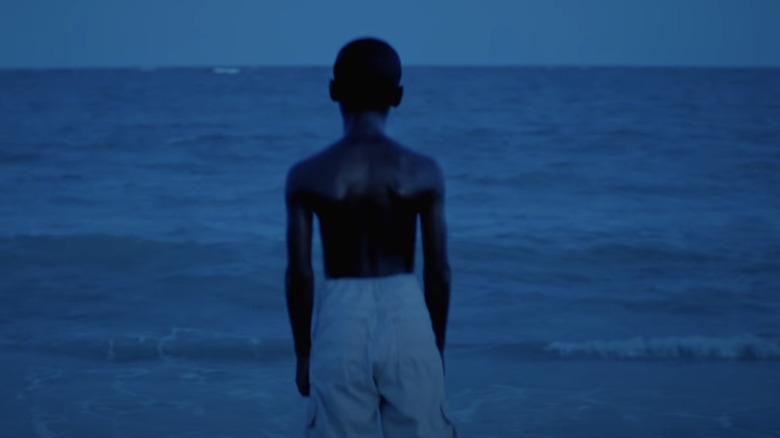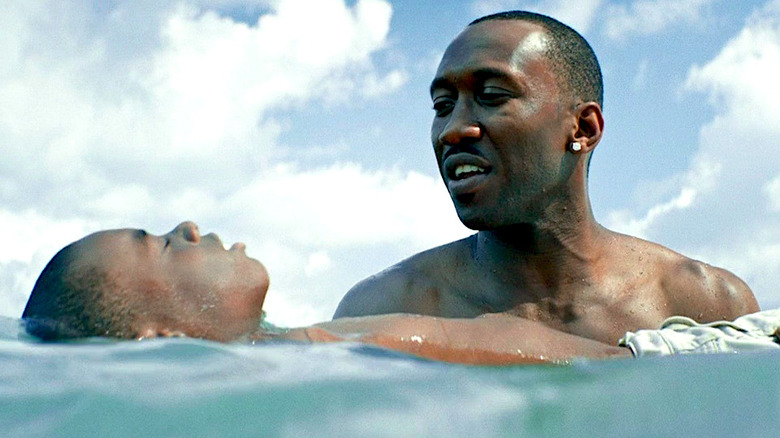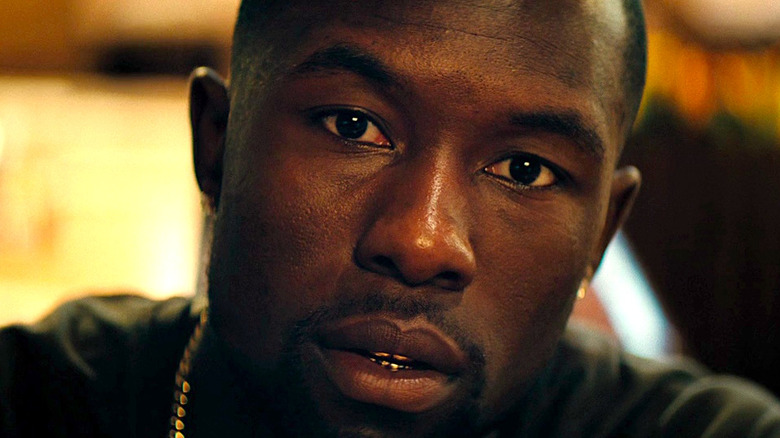Two Other Barry Jenkins Projects Fell Through Before He Found Moonlight
When "Moonlight" came out in 2016, it was unlike anything that had come before it. Based on the play, "In Moonlight Black Boys Look Blue" written by Tarell Alvin McCraney, the film follows Chiron, a young Black man, throughout his childhood and early adult life living in Miami, Florida. It is a movie about many things — masculinity (particularly Black masculinity), sexuality, the way our past affects our future — and it is significant in how it centers Black narratives, treating them with a tenderness that has inspired many Black filmmakers and helped to usher in a long overdue renaissance in Black filmmaking.
But before "Moonlight" won the Oscar for Best Picture, Jenkins had worked on one other film eight years earlier: An indie flick, "Medicine for Melancholy," about a Black couple who, after having a one-night-stand, spend the next day exploring the streets of San Francisco. This film garnered a lot of quiet praise, setting Jenkins up as a talent to watch, but it would take nearly a decade for him to finally get the recognition he deserved. This, however, was not for lack of trying — in between making "Medicine for Melancholy" and "Moonlight," Jenkins actually tried to bring two other very specific projects to the screen.
Time travel isn't for everyone
Just because a script garners interest in Hollywood doesn't mean it will actually ever get made into a movie. A lot of things must align in order for a film to actually make its way to a theater near you. This is something Barry Jenkins understands all too well. After finishing up his first film, "Medicine for Melancholy," he started work on another project that involved time travel and Stevie Wonder, but the project would never see the light of day.
An article for Indie Wire details how after the success of "Medicine for Melancholy," the "Moonlight" and "If Beale Street Could Talk" director was hard at work on what seems to be a very unique script. The film was supposed to be made as part of a deal Jenkins had with Focus Features, where he was free to start work on any project he liked. It just so happened that his interests at the time involved iconic Black musicians and traveling back in time. He told Indie Wire, "Terence [Nance] was going to play a character loosely based on Madlib, and Solange [Knowles] played this free-thinking performance artist, and they both time-traveled back to 1972."
However, after two years of work on the project, it never came to fruition even though Jenkins insists that, "it was really, really dope." But just because this specific take on time travel never got made, that doesn't mean Jenkins hasn't managed to explore similar themes of time and the past in his other work. "Moonlight," though not actually about going back in time, relies heavily on the theme of one's past experiences influencing their present, and though Stevie does not make an appearance in "Moonlight," the movie is still a wonder to behold.
Every bit of work counts
The other project Barry Jenkins started before working on "Moonlight" was an adaptation of the memoir, "Portrait of an Addict as a Young Man" by Bill Clegg. The book details Clegg's personal experience with drug addiction, and at the time when Jenkins wanted to adapt it for the screen, he wasn't the only director with an interest in telling the story. However, Indie Wire states that Jenkins was able to convince producers that he was the right person for the job. After many rewrites, however, it became clear that what Jenkins envisioned for the film was not in alignment with what the producers wanted.
He told Indie Wire, "The film I wanted to make was a bit darker than the one they ended up wanting to make." Ultimately, this difference in opinions led to Jenkins losing the project ("It was taken away from me," he told Indie Wire), joining Stevie Wonder on the cutting room floor. But perhaps this wasn't such a bad thing. After those two projects fell through, Jenkins made a series of short films based in Miami for Borscht Corp. that ultimately led him to "Moonlight."
Even though two of Jenkins' proposed films didn't work out, the work he did on them ultimately helped him on his journey as a filmmaker — his past decisions influencing his future and whatnot. And we are all so grateful that it has led him here, to being one of the most talented directors working in film today.


